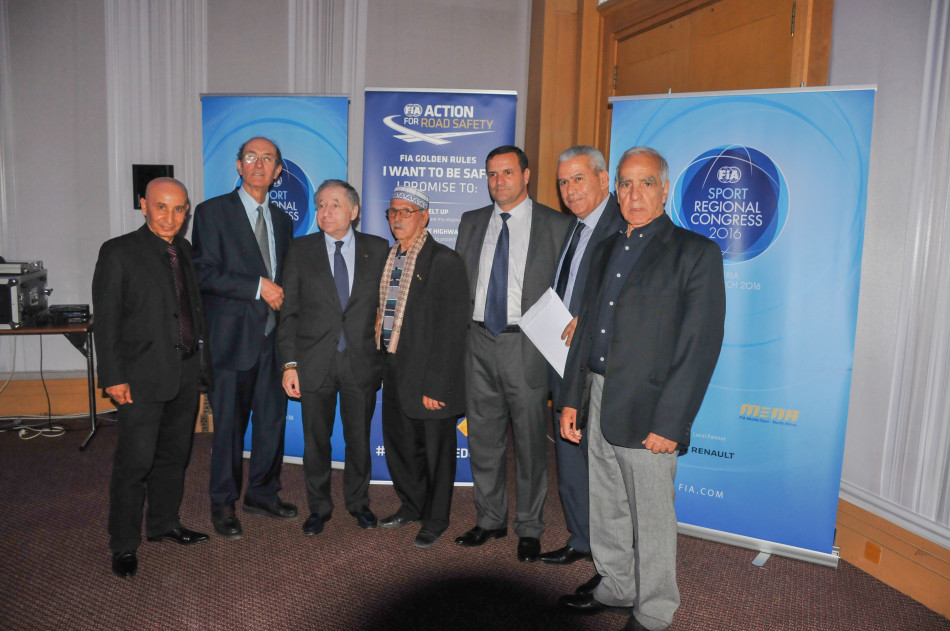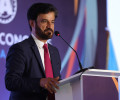Making motor sport work on shifting sands – Part 2

Since its inception more than two decades ago, the Fédération Algérienne des Sports Mécaniques (FASM) has taken steps to revive Algeria’s great motor sport tradition, but amid tough times progress hasn’t always been easy...
In an attempt to raise awareness of motor sport in Algeria and to forge links with fellow ASNs, the FASM recently lobbied for and won the right to host the FIA Congress for the MENA region.
The event, held from March 29-31 this year, saw delegates from 15 nations travel to Algiers to debate the future of motor sport in the region. The Congress, attended by FIA President Jean Todt, also saw the staging of the first ever karting slalom event in the country, organised with the help of the Mégarkart Algerie company, which runs one of the country’s kart circuits in the Cheraga district of Algiers.
Baloul is certain that the hosting of the Congress will have a positive effect on motor sport in the country.
“We requested that Algeria be allowed to host the Congress in order for its Federation and our activities to be better recognised at FIA level and by national authorities; it was a success for the organisation,” he says. “All of the participating countries were pleased with the outcome. Also, President Todt was received by a number of members of the government. His visit was important in terms of our Federation’s image.”
One of the key issues to be raised at the Congress was the possibility of Algeria building a permanent motor sport facility. Baloul is naturally keen for such a project to be realised and says that a possible site has been identified.
“The President of the FIA urged us to build a circuit in Algeria, highlighting the various advantages of having a racing circuit which can also be used as a training circuit for young drivers to teach them how to prevent road accidents and encourage road safety,” the FASM President explains.
“A 60-hectare lot was kindly cleared by local authorities in the Djelfa province to build a sporting complex,” he adds. “While awaiting the required technical studies on this, we are counting on the commitment of the FIA in this matter, notably that of FIA President Jean Todt, in order to successfully develop motor sports in Algeria.”
Though circuit racing requires major investment in infrastructure, many forms of motor sport can be accessed on a more ad hoc basis and Baloul is keen that the FIA encourage the development of such competitions in order to attract more competitors to motor sport on a level that goes beyond national borders.
“Nowadays, Algerian competitors want to participate in competitions at the continental, regional and international levels, but the costs of doing so make this ambition unrealistic,” he says. “That is why I am asking the FIA to set up championships and trophies that do not require participants to pay large sums of money, which would increase young people’s participation in motor sport.”
In the meantime, the FASM President says that while developmental issues still challenge the club, motor sport continues to grow in popularity in Algeria.
“Algerian motor sports are improving greatly, with young people showing a keen interest. Our sport is present in several provinces via sporting leagues affiliated with the Federation and some 40 clubs that are overseen by approximately 100 officials.
“However, our Federation needs the facilities and teaching materials, and especially karts. The FASM organises free motor sport competitions for drivers and in order to encourage them, prizes are awarded to the winners.
“The main objectives we now have are for Algerians to have the chance to participate in international motor sport races and to provide our Federation with the appropriate facilities, particularly a racing circuit and karting circuits in different regions, as well as to be able to provide the FASM with equipment, such as for karting. To develop a sport, the facilities and financial backing need to be in place, as well as the materials and continuing education and training.”
It might seem a long way from the days of grand prix racing in Algiers but the goals being pursued by the FASM are no different to those of the clubs’ antecedents – to build a sporting tradition, to encourage competition and to see a new generation of racing enthusiasts compete at every level.


 Facebook
Facebook Twitter
Twitter






